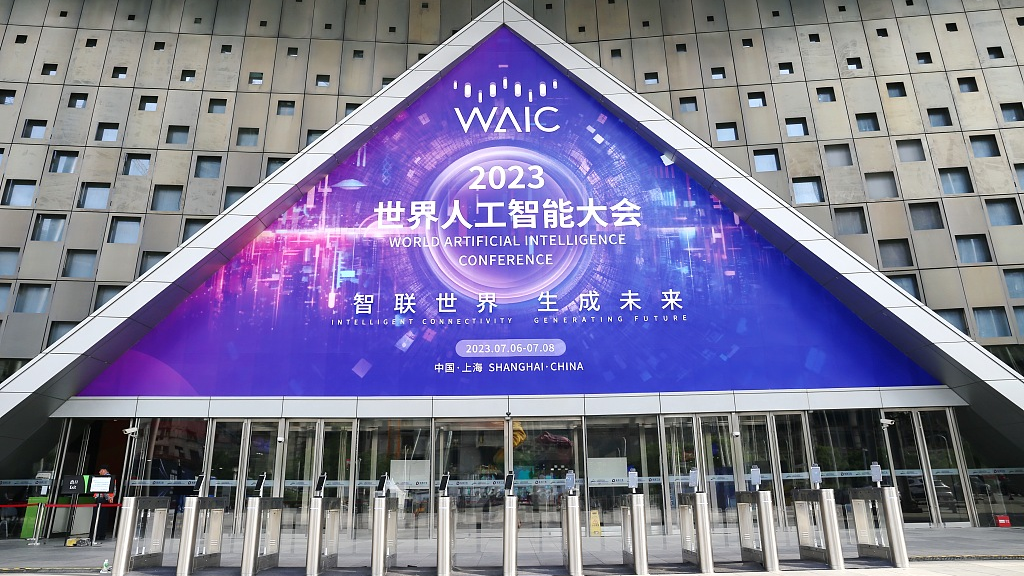
The 2023 World Artificial Intelligence Conference is being held from July 6 to 8 at the World Expo Center and World Expo Exhibition Hall in Shanghai, China. /CFP
The 2023 World Artificial Intelligence Conference is being held from July 6 to 8 at the World Expo Center and World Expo Exhibition Hall in Shanghai, China. /CFP
In 1973, computer scientist Jacques Vidal coined the term "brain-computer interface" in his paper titled "Toward Direct Brain-Computer Communication."
A brain-computer interface refers to the direct connection established between the human or animal brain and external equipment, enabling information exchange between the brain and the equipment.
Fifty years later, this concept is turning into a reality and has witnessed continuous technological breakthroughs in both international and domestic markets, which were driven by technological advancements like artificial intelligence (AI) and market demand in the medical and health sectors.
At a sub-forum of the 2023 World Artificial Intelligence Conference (WAIC), being held from July 6 to 8 in Shanghai, China, experts and scholars from medical, computer and other fields engaged in an interdisciplinary discussion on the development direction of the cross-integration of biotechnology and information technology (BTIT).
Brain-computer interface and mental health
Zhao Min, director of the Shanghai Mental Health Center, highlighted the significant application value of integrating artificial intelligence technology and medical services in clinical diagnosis, treatment, and disease management.
She believes that brain-computer intelligence holds vast prospects in the domain of mental and spiritual health.
Zhao said brain-computer interface technology has already found clinical applications in treating conditions such as depression, Alzheimer's, Parkinson's and addiction. "While brain-computer intelligence still has a long way to go, we are already witnessing its emergence," she said.
She also urged more scientists to focus on mental health and encouraged multidisciplinary collaborations in the future, believing brain-computer intelligence can play a groundbreaking role in psychological intervention with the advancement of AI technology.
Brain-computer interface a new "bridge"
Mao Ying, president of Huashan Hospital, described the brain-computer interface as a novel bridge connecting our brain to the external environment.
As an innovative neurotechnology, the brain-computer interface brings convenience to doctors and hope to patients. Mao emphasized its development trend, which is transitioning from the realm of appearances to mechanisms, from invasive to non-invasive techniques and from single-discipline to multidisciplinary approaches.
Mao said the brain-computer interface serves as a crucial core technology for artificial intelligence to progress toward deep intelligence. "Our exploration of the human brain knows no bounds," he said.
Increased investment in AI brain science
During the sub-forum, the Tianqiao and Chrissy Chen Institute (TCCI) announced a one-billion yuan ($14 million) investment in the development of AI brain science.
Chen Tianqiao, the institute's founder, believes that the fascinating digital life depicted in science fiction can only be realized by combining AI and brain science, creating a truly sentient digital existence.
NeuroXess, a flexible invasive electrode company supported by TCCI's Chen Frontier Lab for Applied Neurotechnology, unveiled several significant advancements during the WAIC.
These achievements included the "silk protein neural photoelectrode" that enables analysis and regulation of brain nerves and the "mosquito-like mouthpiece bionic flexible neural probe electrode" that facilitates minimally invasive epidural implantation, two noteworthy academic accomplishments.